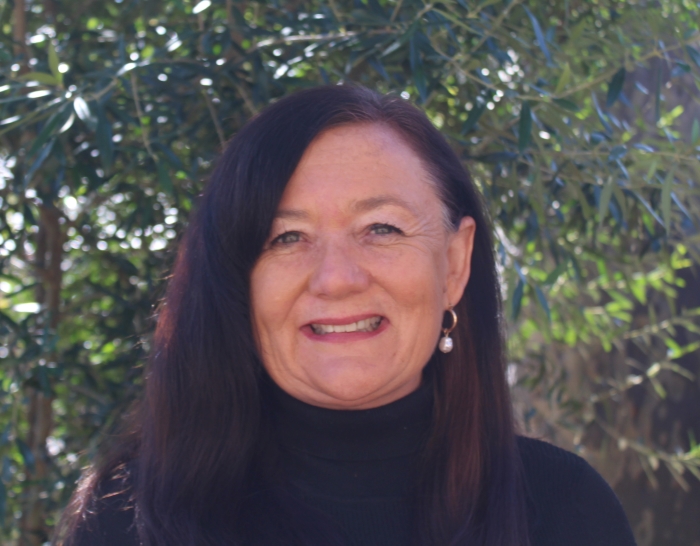A new Indigenous Knowledges Lecturer at UNE, Lynette says many major hurdles have been broken down since she began studying, but targeted networks and support systems remain critical to student success.
“When I first studied, at Charles Sturt University, Indigenous students would come together for a few days each semester for the comradeship and became my extended family. Many of my family are from the Stolen Generations, my uni colleagues helped me meet my mob. I recall attending a funeral at Minindee for one of our uni colleagues, there were a lot of my Lake Cargelligo/Murrin Bridge and Menindee family I’d never met.
“As I was leaving the funeral, I think three carloads of the mob sort of just jumped out of the car and said, ‘I’m your cousin! I’m your Aunty! I’m your Uncle!’ I was just blown away and I just recall my fellow students just crying. My mob still yarn about that day.
“At uni, we worked through a lot of racism together, and I’m really grateful that we have so much support for First Nations people in universities now.”
I think there’s a lot of ways that we can adopt new ways of doing things that are easy, that just make people feel that they belong and are valued, and that bring a bit of their culture to UNE.
Lynette is most passionate about advocating for and working with community and Country, recently successfully fighting against the NSW Water Mole River Dam proposal.
At UNE, she’s guest lectured in Introduction to Political Studies, which drew on her work and experience as a senior policy officer at ATSIC, specialising in a Treaty between First Nations people and the Commonwealth, state and local governments.
That experience is forming part of her PhD, and meanwhile as an Indigenous Knowledges Lecturer, she is excited about the opportunities to bring about change at UNE.
“I’m looking forward to looking at the way that UNE does things, such as promoting Indigenous issues. I think there’s a lot of ways that we can adopt new ways of doing things that are easy, that just make people feel that they belong and are valued, and that bring a bit of their culture to UNE.”
In order to enhance the learning opportunities for students, she has invited some guest speakers to the student community sessions she and her fellow Indigenous Knowledges Lecturers have set up at UNE.
“The more we talk to other people within our communities, the more we can get an understanding of where we can go on issues that affect us all, like Aboriginal deaths in custody, over representation in incarceration, the environment, Closing the Gap, all those sorts of things.”
I’d really like to reach out to other students I can possibly help in any way. I know all First Nations students have barriers to cross. In my mind, a strong support system is essential for success.
But she’s also keen to ensure students get the one-on-one support they might need to succeed – even when it means going the extra mile. Literally.
“I’ve gone to south-eastern Queensland to meet one of our students and introduce her to part of our family, because she wanted to learn more about her Indigenous protocols within her studies. So I did what my fellow students had done for me. You just do that for your mob.
“I’d really like to reach out to other students I can possibly help in any way. I know all First Nations students have barriers to cross. In my mind, a strong support system is essential for success.
As a mentor, Lynette understands the challenges that come with juggling the demands of family life with university studies, which many students grapple with.
“When I first started studying I had my first child as well, by the time I’d finished at Charles Sturt I was a single mother with three children, I was doing the course part-time. I really understand how it is being a sole parent and looking after young children and studying, and the difficulties around that. You sort of need to have a little bit more TLC for yourself and support systems."
Lynette is chuffed to have been able to instill an appreciation for education in her children – with all three attending university, and two at UNE.
“If I hadn’t stepped out and started my studies, my kids would probably have taken a different path. It’s really nice to see my own children blossoming at UNE.
“I want to help ensure that all First Nation students feel like they belong here and have a culturally safe space where they can vent issues and feel like we’re part of a family. Like an academic family.
“I think having the Indigenous Knowledges Lecturers positions is a really wonderful thing the university is doing.”
Meet UNE's other Indigenous Knowledges Lecturers:


